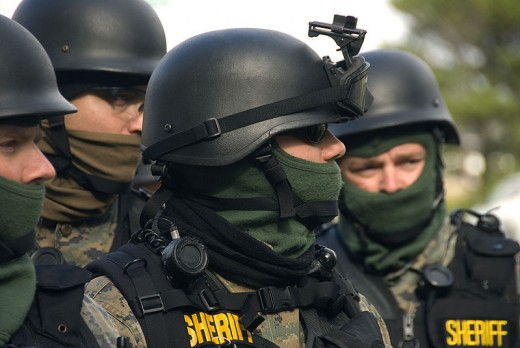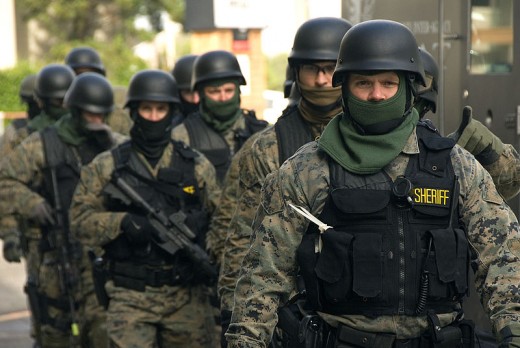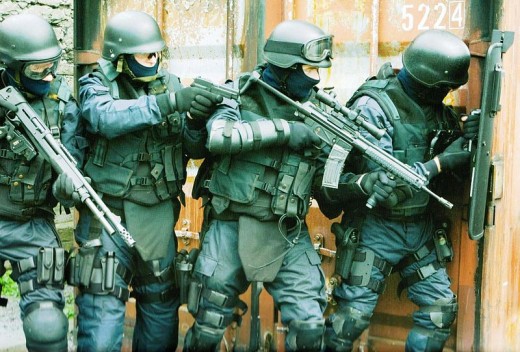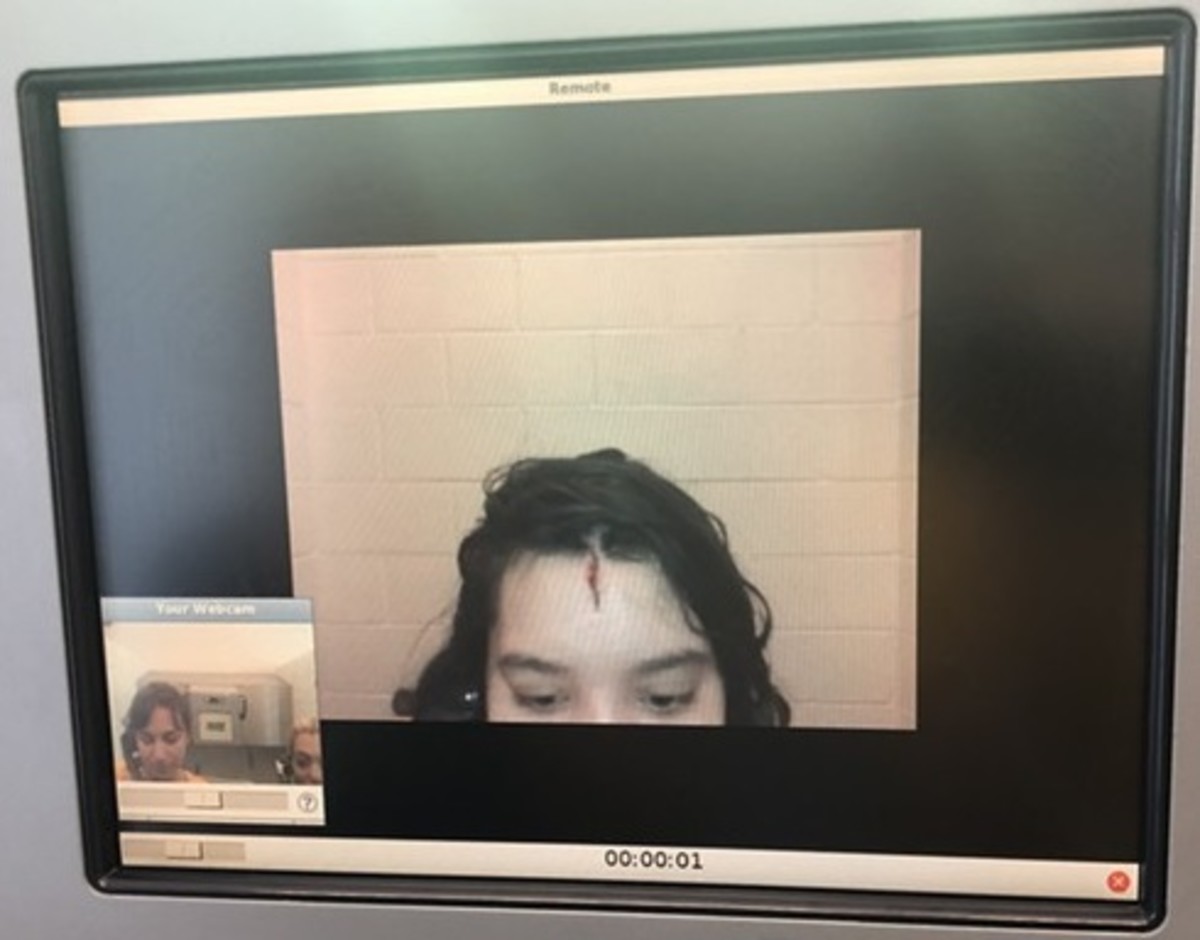Warzone: The Militarization of American Police
A Quick Note
The information presented in this article is based on publicly available information and a recent ACLU study. The opinions of the author are not necessarily reflected here. I am in no way affiliated with the ACLU, Law Enforcement, or any other associated entity, and have the deepest respect for American law enforcement and the work that they do to maintain the law and, in that, the very foundation of our societal stability. It is not my intention to undermine the public trust in the police, only to present the given information in a concise, reader-friendly format and explore the nature of the expanded use of military tactics and equipment in modern law enforcement.
This article may contain information that could make some readers uncomfortable. I apologize for that, and will attempt to keep the graphic nature of some of the segments to a minimum.

Wake-Up Call
Just imagine it. You're in the safety of your home in the early morning hours. You're awakened by the sound of glass breaking, and moments later a deafening roar fills your ears and you're blinded by a brilliant flash. As the ringing in your ears subsides, it is replaced by the screaming and crying of your children as your bedroom door flies open. Black-clad men with masks and assault rifles pour into your room, leveling their weapons on you and your partner as they shout for you to lie face down with your hands above your head. You're handcuffed and dragged to your living room where you and your family sit for hours at gunpoint. The men will not answer your questions about what is going on or why they are there. When they finally leave, your home looks like a warzone. Shattered glass is everywhere, broken electronics, up-turned drawers, and your families' personal effects litter the floors. Smoldering holes from the flashbang grenades still smoke in your carpet. Your children are still sobbing amid the ruin that was your home.
Sadly, this is reality for an increasing number of Americans as our police forces become better equipped and more aggressive in the war on drugs. With SWAT deployments on the rise across the country, many wonder if it is justified. I do not seek to answer that question, only to present the facts and let you decide.
Case: Tucson, Arizona - 2011
Jose Guerena, a Marine Corps veteran, was in bed with his wife when she was awakened by a strange noise. Believing that she saw a man standing outside the window, she woke Jose who told her to hide in a closet with their 4-year old son. Guerena then grabbed his rifle, with the safety on, and went to investigate, presumably fearing that a burglary was in progress.
A SWAT team entered the home and fired 71 shots, 22 of which hit Guerena. He died in the kitchen, having received no medical attention. Police officials argue that the officers announced prior to entering the home, and that the sound of sirens in the background should have made it apparent to Guerena that it was the police entering his home. This was supported by a helmet cam video released by the department following the incident.
Reportedly this SWAT raid was a drug-related one, and the team raided multiple homes in the neighborhood. No drugs were found in the Guerena home.
The Warrior Mindset
In today's police forces, increasing emphasis on "the warrior mindset" is taught. This is a psychological function perfected by the military to teach soldiers to act effectively in combat, without hesitation. In a law enforcement context, this allows SWAT and similar units to quickly perform their function while minimizing risk of harm to officers. It is argued by many, including the ACLU, that this same mindset causes these officers to see the people that they are supposed to protect and serve not as civilians, but as enemy combatants.
The result is that lethal force is an increasingly present solution to many SWAT deployments. This is an unavoidable consequence of active shooter situations and other high-risk engagements, but with a majority of SWAT deployments taking place for the purpose of serving a warrant in drug-related incidences, it is argued that the use of such extreme measures is unwarranted.
SWAT, by design, is to be deployed when a level of risk exists to a degree that prevents ordinary officers from responding safely. This is often interpreted as meaning that if there is reasonable suspicion that the home contains a firearm, the risk to law enforcement officers is sufficient to warrant the use of SWAT.However, with roughly 50 percent of American households containing at least one gun, is this entirely justified?

Case: Framingham, Mass. - 2011
Eurie Stamps, a 68-year old man, was watching baseball when a flashbang was deployed and a SWAT team entered his home. Following the instructions of the officers, Stamps lay face-down on the floor with his arms above his head when one of the officers' weapons discharged, killing Stamps.
Stamps was not the suspect in this case. The officers were looking for his girlfriends' son on suspicion of drug dealing. The suspect did not live in Stamp's home, and had been detained roughly an hour before this incident. In spite of this, the department decided to conduct the raid anyway, presumably for evidence-gathering purposes.
The incident was later determined to be an accidental weapon discharge by investigators.
The War on Drugs
What motivates the use of SWAT teams to serve drug-related warrants? The ACLU argues that government-provided grants and equipment afforded by the Department of Homeland Security, under the blanket of the war on drugs, encourages police departments to use SWAT more frequently. if the ACLU is right, this sets a dangerous precedent. In this scenario, police departments that resolve issues without violence are essentially punished by a reduction in the money and equipment that they need, while departments that engage in allegedly "high-risk" scenarios are rewarded. This opens up the possibility that these departments, in order to receive more money and equipment, are manufacturing excuses to deploy militarized units. The result, however, is often times needless destruction of personal property, collateral damage, and potentially unnecessary casualties.
Accuracy of Threat Assessment
SWAT Deployments
| Weapons Found
| Weapons not found
| Unknown
|
|---|---|---|---|
Weapons believed present
| 35%
| 32%
| 33%
|
Weapons not believed present
| 13%
| 43%
| 44%
|
Accuracy of threat assessment based on ACLU study of over 800 SWAT deployments.
Unnecessary Escalation?
You hear a strange noise in the middle of the night. Perhaps a doorknob rattling, perhaps a window breaking. Many people, in this scenario, would arm themselves and investigate. Unfortunately, if that sound happens to be the police executing what is called a "no-knock warrant", the result of your attempt at protecting your family and property could be tragic.
It can be assumed that the unannounced entering of a home would result in the sort of situation presented in the case of Jose Guerena. A homeowner, simply investigating a strange noise while armed and well within his legal rights, is gunned down because of a potential perceived threat to the officers executing the raid. It is believed by the ACLU that this escalation is an unacceptable risk to the lives of law-abiding citizens.
I don't suspect that anyone wants to see police officers injured or killed, but the question is whether the risk outweighs the reward, both for law enforcement and civilians. Statistics on the success of SWAT raids are impossible to acquire, and the media sensationalizes every failed raid to the fullest degree.

The Bottom Line
Should SWAT deployments be subject to greater oversight?
Conclusion
Is the potential for harm to civilians worth the militarization of our police forces? There is inherent risk in becoming a police officer, a risk well-known who choose that path. Should the same type of risk, the risk of having your home invaded by police officers on suspicion that may or may not be founded, exist for every single American? It isn't my prerogative to answer. I have no right to weigh the lives of civilians and law enforcement officers.
What I know is that civilians have needlessly died, homes have been destroyed, and pets have been killed. How many lives have been saved, I cannot say. No accurate statistics exist to my knowledge on that subject. The ACLU would have us believe that these police forces are fascists reminiscent of the Gestapo in Nazi Germany, but one is unwise to accept their assessment at face value. As always, I believe that the truth of the matter lies somewhere in the middle. Criminals forfeit their rights when they break the law until the matter is resolved. Law-abiding citizens, however, are paying the price as well.
The bottom line is that we are an ever-evolving society, and criminals and law enforcement alike constantly adapt and change their methodology. Some tactics will prove effective, and some will not. Some will save lives, and some will be failures paid in blood.
The question I pose to the reader is this: Is the increasing employment of SWAT teams, military equipment, and military tactics worth the risk to civilian lives and the sanctity of their homes?





